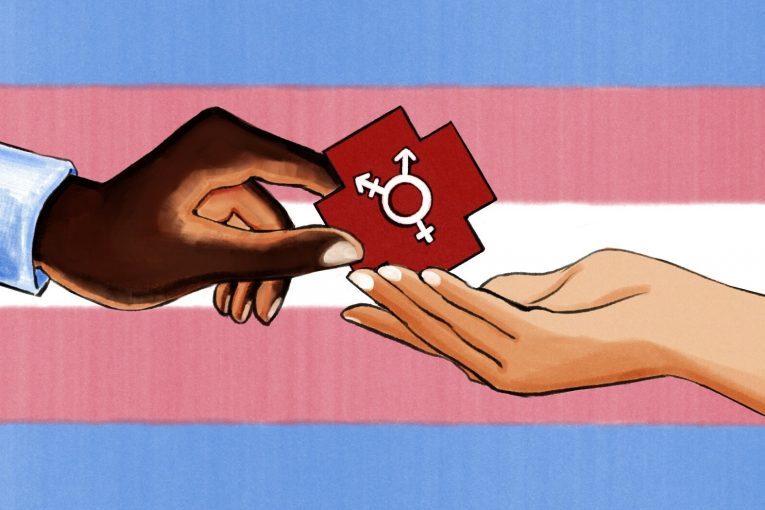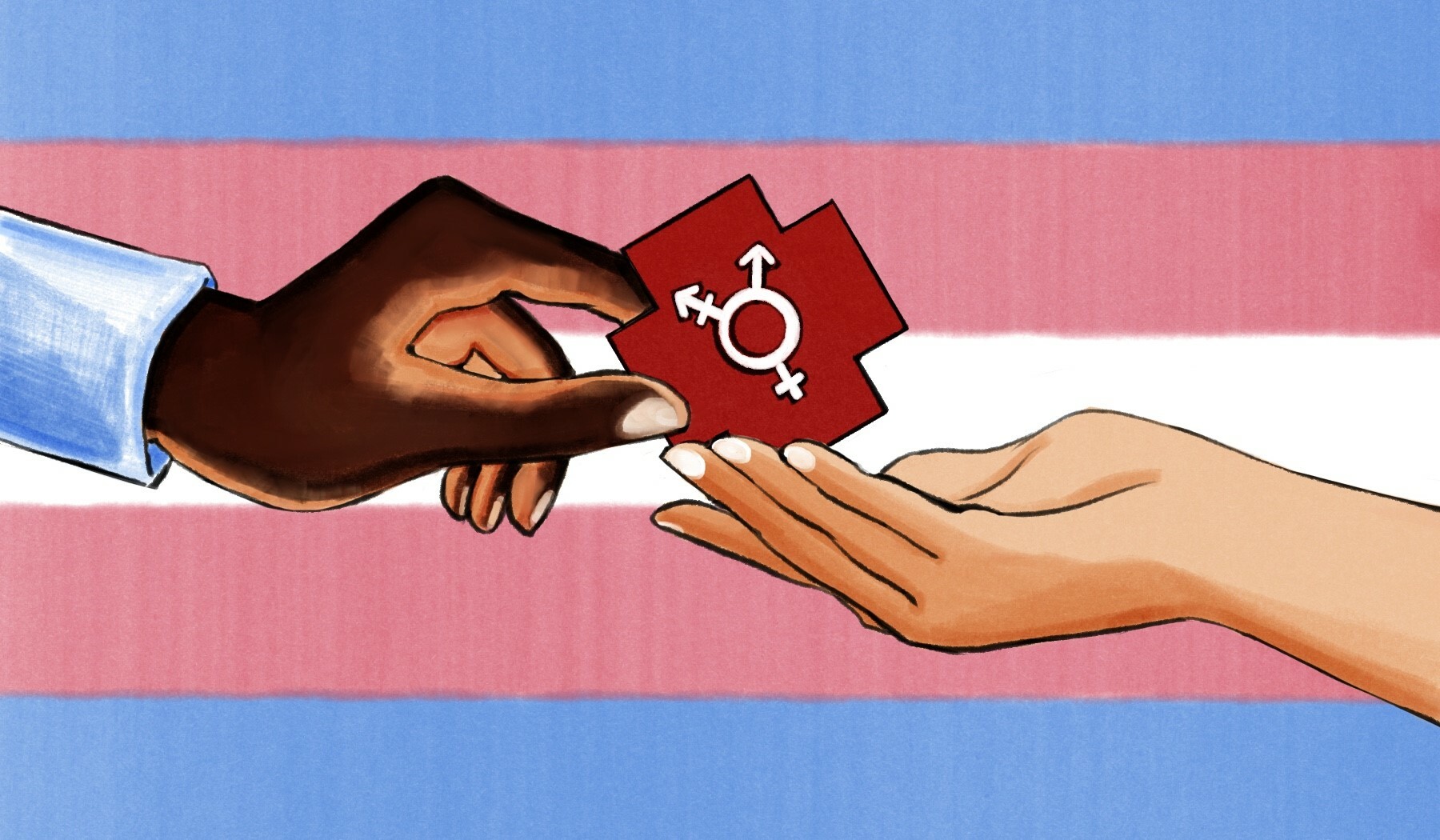

Transgender people who have experienced prison call for more humane conditions and treatment.
Nearly one in six transgender people report experiencing jail or prison at some point during their lives. For Black transgender people, the rate is nearly one in two. Once incarcerated, transgender people often experience assault and face isolation or solitary confinement. Too often, their voices go unheard.
This essay was originally published by the Vera Institute of Justice. The Vera Institute of Justice interviewed five transgender people who survived incarceration and asked them to share their stories. We have broken this out into five parts.
Part Two – Brenda Plante (she/her/hers)
When I was younger, we didn’t have a name for it. I felt like I should have been born female. I felt like I couldn’t be me. You want people to accept you, so you try to pretend to be what they want you to be.
I was self-destructing because I hated who I was. I had male characteristics, but I felt different inside myself. I was an alcoholic to escape the feeling that I didn’t want to exist like that. It is hard to pretend you are something that you are not. Today, they  have hormones and different clothing and stuff like that. It was tough to get help back then.
have hormones and different clothing and stuff like that. It was tough to get help back then.
I had one therapist, and when I told her how I felt, she said, “Oh, you need to toughen up.” They would give you labels that you are crazy for what you feel. I even had to change my medical doctor because when I told him about my gender, he got angry at me. He wouldn’t hear it. There was a time in the 1990s when a medical provider told me it was against her religious beliefs to prescribe me medicine that I needed. I couldn’t find doctors till I was 50-something years old. Being 63, I go back a little way.
A lot of trans people I know keep going back to jail because they need better counselors who understand gender issues. A lot of our Black and Pink National members haven’t had stable environments. They have experienced homelessness, struggled with addiction, and have been sex workers. I was also homeless and exploited in the past. I was molested by a priest when I was in an orphanage. When I was homeless, I sold myself on the streets. When you go through the ringer like that, it is tough. At least now I have a gender therapist and a psychiatrist. I didn’t have really good counseling until maybe five years ago. If you don’t work on these issues, you are doomed. You are just going to keep on repeating the cycle.
When I went to prison, I hid everything at first because I was afraid of getting beat up. I would try to exercise and put on a tough guy defense because I was really scared. I was in different prisons in different states, and if you don’t act tough, people will step all over you. In prison, I eventually came out. All my friends knew, and everybody on our block [did too]. There were gangsters in there, and they didn’t care. I was fortunate that the block I was in was nicer. I had good luck because it was a drug treatment unit where you do programs, and that kept me safe. There was structure and a lot more rules. The people in that block were trying to recover and get counseling and work on their drug addictions. They took things seriously.
If you are going to have prisons, you need to have mandatory counseling and education. People really need better counseling. When you are sitting there for a year or two, a lot can change. You have nothing else to do but focus on yourself. Counseling would be the number one thing to help to stop that revolving door. But a lot of times, the counselors you get in jail are not helpful. If I was depressed in jail and suicidal, they would throw me in a cell naked. That was hard; in fact, I think it is sadistic. They took the mattress out, so that you just had metal to lie on with no clothes on. They would turn on the air conditioning and you would just shiver. I don’t know if they were trying to shock it out of you. It was rough. It’s like you are being punished for being depressed. Depression is something you are going to experience if you are in prison, especially if you have a difficult background.
I have been out [for] over 20 years, and I have not been in trouble again. I would never want to go back to a men’s prison. I would be afraid. Even when I am on the streets, I am nervous. I am hypervigilant, always on guard. If we lived in a world where everybody had access to housing and food, and we all did our jobs for the betterment of the whole, and we didn’t need people to make billions of dollars, we wouldn’t have prisons.
